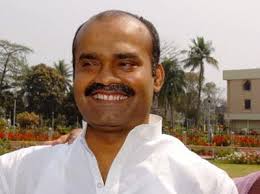New Delhi, Mar 29: Amidst displeasure in the BJP over his induction, expelled JD(U) leader Sabir Ali today asked the BJP leadership to put his membership on hold till the charges against him are cleared.

"I have written a letter to Dharmendra Pradhan to keep my membership on hold. I have also asked him to form a committee in this regard and enquire into my case on the basis of these allegations. If they find these allegations true even distantly, I will quit politics forever," Ali told reporters here.
Ali challenged Naqvi to prove the allegations, saying he has not even seen Bhaktal in his dreams, but came to know only through newspapers.
"I am asking if he has the guts to prove? If not he should quit politics. I am ready to do," he said.
Naqvi had yesterday made an angry outburst against induction of Ali whom he called a "friend" of Bhatkal and mocked that Dawood Ibrahim could be the next entrant.
RSS also opposed Ali's entry and lodged a protest with BJP chief Rajnath Singh.
"Sabir Ali's induction has caused great resentment. Party leadership has been apprised of d strong views of d cadre n people agnst it," RSS national spokesperson Ram Madhav tweeted today.
Naqvi, a Muslim face and Vice President of the party, had termed Ali's entry into BJP as a "mistake" and demanded its reversal.
BJP spokesman Sudhanshu Trivedi had said the induction was done on the recommendation of Bihar unit of the party and "further action" in the matter will be taken after "verifying all facts and antecedents" of Ali.
"Terrorist Bhatkal friend joins BJP...soon accepting Dawood...," Naqvi had tweeted, hours after Ali was inducted into the party with much fanfare as it was seen as a boost to the BJP's attempts to attract muslims.
"Whatever has happened today, I am pained and have already expressed my anguish in the party. Somewhere there has been a mistake committed by the party and the party needs to correct that by reversing the decision," Naqvi had said.





Comments
Add new comment